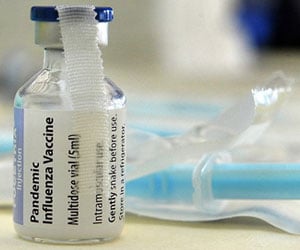
These partnerships may be especially relevant in Asia, particularly "in places where there is even some stigma attached to the public sector and people think going there is something only the poor do," Gargioni illustrated at the sideline of the international symposium "Research and development of new tuberculosis vaccines" in Zaragoza, Spain (June 3-4). "It is important to recognize this specific situation when addressing tuberculosis issues: this means availing proper diagnosis and care based on international standards wherever people will decide to seek medical attention."
The International standards for Tuberculosis (TB) Care and certifications for private practitioners who follow them give some guarantee about the quality of their work and of their collaboration with national TB programmes, Gargioni adds. "Moreover, WHO (World Health Organization) tuberculosis epidemiological data come from case reporting by public health systems and, unless they also includes information of the private sector, might then not fully reflect the situation."
The establishment of (more) public-private partnerships can play an important role in facing these challenges, Gargioni says. "We're looking at the private sector not as a problem, but as a resource," he stresses. "If the private and public sector establish partnerships this can improve access to diagnosis for thousands of sufferers, ensure quality of care and make the data we have on the global tuberculosis epidemic more accurate."
Not only health care providers, also communities have to get more involved. "Communities could and should play a decisive role, particularly in tuberculosis detection by referring to health facilities people with chronic respiratory symptoms and supporting patients during their treatment," Gargioni says. "But communities are often completely unaware of the TB problem and not involved in a dialogue to shape successful strategies at grassroots level."
In a presentation at the symposium in Zaragoza, Gargioni presented an overview of the global achievements and challenges in TB control and research. Incidence rates are highest in Africa. "But in terms of absolute number of cases, more than half are in the Southeast Asian and Western Pacific region," he said.
Advertisement
Weak health systems are a major challenge in efforts to control tuberculosis in general, and MDR-TB in particular. "Problem number one is the crisis in the health work force. There are not enough people on the ground, to be close to where the TB patients live and make care accessible," Gargioni said, adding that more laboratories, improved infection control and more financial resources are needed as well. "If we concentrate the efforts to control MDR-TB in India, China and the Russian Federation, we can make a significant difference."
Advertisement
The two day symposium (June 3-4) was organized by the University of Zaragoza, the foundation Ramon Areces and TuBerculosis Vaccine Initiative (TBVI).
(Contributed by: Bobby Ramakant)
Source-Medindia












